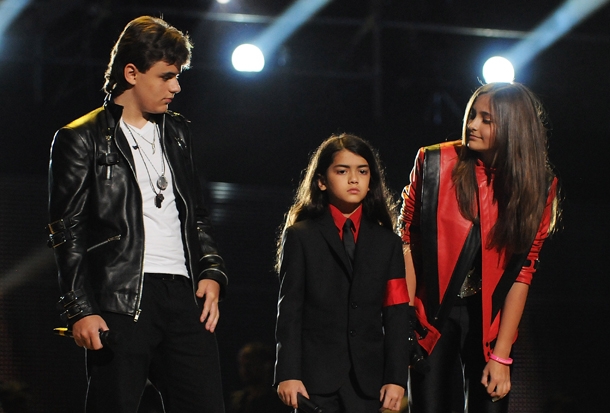You have to pity the Welsh woman who was last week prevented by the Court of Appeal from naming her daughter ‘Cyanide’. An unusual choice, admittedly. And the mother’s defence — Cyanide is a ‘lovely, pretty name’ because it was the drug Hitler used to kill himself ‘and I consider that this was a good thing’ — didn’t help. But given some of the names being foisted on kids these days, Cyanide almost seems sensible.
Naming your child was once simple: you picked from the same handful of options everyone else used. But modern parents want exclusivity. And so boys are called Rollo, Emilio, Rafferty and Grey. Their sisters answer to Aurelia, Bartolomea, Ptarmigan or Plum. Throw in a few middle names and the average birth certificate looks like an earthquake under a Scrabble board. In the poll-tax returns for 1379, one in three men in Sheffield was called John. Now the name has dropped out of Britain’s top 100. Mary doesn’t make the girls’ top 200. More girls are christened Skylar, Luna or Zoya than Mary. Thor is more popular than Gordon. No doubt Mr Brown had an effect, but it’s still astonishing that in 2014 only ten British boys received that name.
Not that the strange new world is without rules, according to the book You’re So Mummy. Its authors Alex Manson-Smith and Sarah Thompson advise: ‘No flowers (too popular), no cities (too common)… Animals are in (Wolf, Bear, Otter) as is weather (Rainbow) and soul singers (Otis, Elwood).’ No word on cars: my partner recently heard a playground echo to the cry of: ‘Aston! Jensen!’ The boys should think themselves lucky. It could have been: ‘Skoda! Nissan!’
The trend is reaching the stage of child cruelty. Harry Wallop of the Daily Telegraph regularly delights his Twitter followers with morsels from the paper’s births column. ‘Elektra Esmeralda,’ runs a typical example, ‘a little sister for Dorothy, Wulfstan and Cleopatra.’ Or: ‘Grayson Jude Strathearn, a brother for Kester and Talia.’ John has appeared, but only as a middle name sandwiched between ‘Awbrey’ and ‘Wulfram’. Likewise Mary, tagging along behind ‘Tarka Valentine’. Wallop discusses names in his book about the tribes of modern Britain, Consumed. The internet, he says, has made a big difference. ‘The web’s culture of unique URLs and social media handles has altered the way we think about labelling ourselves. Who wants to be ChrisJones987 when you could be Zephyr Jones?’ He also documents the rise of a class he dubs the Hyphen-Leighs. ‘A hyphenated name is the easiest route to creating a genuinely unique name: Demi-Leigh, Rose-Leigh and so on.’
As well as new monikers appearing, the old ones are crossing the gender divide. Confusion has always been a possibility — Evelyn Waugh’s first wife was called Evelyn — but now things are getting out of hand. Real-life equivalents of Johnny Cash’s ‘boy named Sue’ remain rare (give it time), but girls have been christened ‘Sebastian’, ‘Quentin’, ‘Maxwell’ and — in the case of the actress Blake Lively’s daughter — James. Some names defy any classification. If you were going to meet a ‘Fortune’, would you be looking for a man or a woman? Likewise ‘Arki’, ‘Hazard’ and ‘Diggory’. Also ‘Zephy’ (I don’t think that one’s missing an ‘r’). When communication is by tweet or email rather than by phone or in person, you can conduct entire relationships without learning the other person’s sex.
Part of the explanation for all this is social climbing. Toffs have always gone in for stupid names, often in honour of previous generations. As Harry Wallop puts it: ‘They’ll tell a child, “The third earl was called Badger, and if it was good enough for him it’s good enough for you.” ’ But now the lower classes are copying them, meaning Britain’s estates as well as its estates teem with Katinkas and Lovedays, Dalbiacs and Bees. If the chavs think they’re conning anyone, they’re mistaken. They’ve forgotten about ‘eccentric sheep’ syndrome.
This is the process, identified by social anthropologist Kate Fox in her book Watching the English, whereby something meant as ‘evidence of our eccentricity and originality’ ends up as ‘conformist, conservative rule-following’. Fox applied it to clothes, but the same thing is happening with names. In an attempt to make their children stand out, parents are only helping them to blend in. When everyone’s a Marni or an Autumn or a Sky, the rebellion has nothing to register against.
So could we go full circle? Maybe it’ll dawn on people that plunging your hand onto a qwerty keyboard and naming your baby with the collection of letters that results is naff. There’ll only be one way to really give them cachet when the school register is called: a traditional name. It won’t be any old Tom, Dick or Harry that gets to be called John.





Comments